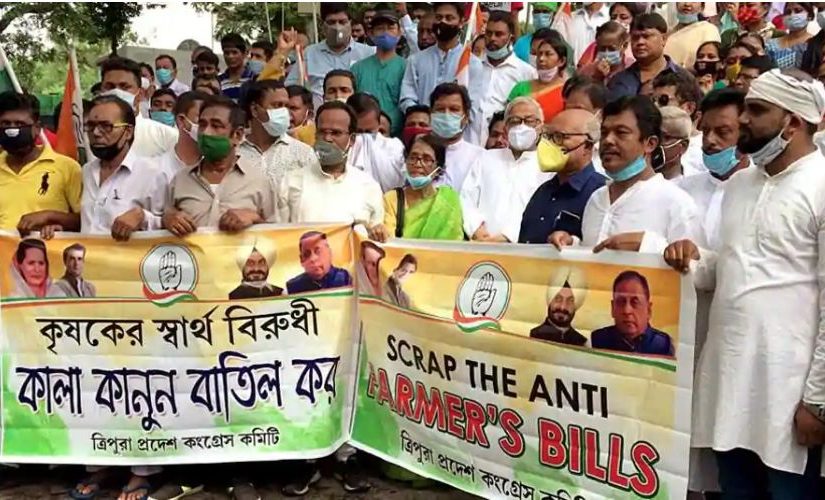LIMITED: Protestors like animals in a zoo have been limited to designated zones and cannot block roads like the late
By Rajan Narayan
The Supreme Court, which is reportedly controlled by the Modi government, has limited the Right of the Citizen to Protest. It abridges the Constitutional Right to Freedom of Speech to the extend that like animals protestors will also be confined to specific spaces like the Azad Maidan…..
There have been reservations about the new judges appointed by the Modi government to fill vacancies in the Supreme Court. It may be recalled that a large number of senior Supreme Court judges, who were the part of the selection committee, protested against the arbitrary decisions of the former Chief Justice, Ranjan Gogoi. There is a tradition that after retirement, the Chief Justice of the Supreme Court will not accept any position of profit not only in the government but also in Parliament. In the case of Gogoi there was not even a decent cooling off period. Ranjan Gogoi was nominated to the Rajya Sabha by the BJP government. There were photographs of the Chief Justice of India who ranks just below the President in seniority bowing before the Home Minister Amit Shah.
freedom of speech
The fear that the BJP would try to undermine the autonomy of the SC have unfortunately come true. The Constitution of India guarantees the Freedom of Speech. A primary aspect of the Right to Freedom of Speech includes the right to protest. No government in the past or for that matter any Bench of the SC has imposed any restrictions on the right to protest. Shockingly on Wednesday a SC Bench comprising Justice Sanjay Kishan Kaul, Aniruddha Bose and Krishna Murari ruled that protestors cannot block roads or any public space. The decision of the SC was in the contest of a protest march by the people of Shaheen Bagh, who had blocked part of the national highway for over a month. Mercifully the Right to Protest itself has survived the subservience of the Supreme Court to the Modi government. The Bench which has banned public protests in any public spaces has however conceded that the right to protest was a Constitution Right. And that any issue being sub-judice could not be an excuse to ban protests as such. The order was primarily against the blockade of public spaces and roads, which were the popular means of protest against the colonial rulers.
blocking roads
Among the traditional forms of protest that has been banned by the SC is any blockage of public spaces. The Shaheen Bagh protest was a protest against Constitutional Amendment Act which was seen as discriminatory against the Muslim community. One of the main issues in the case filed by the people of Shaheen Bagh was that the courts were being misused to prevent their voice being heard. To that extent it was violating the Constitutional Rights of the minority community.
Democracy and Dissent go hand in hand but then demonstrations expressing dissent have to be in designated places alone. The present case was not even one of protest taking place in an un-designated area but was blockage of a public highway which caused great inconvenience to commuters, the Bench observed. The blockage of Kalindi Kunj stretch of a busy national highway continued from December 15 to March 24 2020 while police got the site clear following the Covid-19 outbreak. The Bench commented that while the “hand of god had helped to remove the blockage, courts should be prompt to take action in such cases in the future.”
protest in-dispensable
Quoting Pulitzer Prize winner, Walter Lippmann’s words “In a democracy the opposition is not only tolerated as Constitutional but must be maintained because it is indispensable.” The Bench said it respects the right to peaceful protest of citizens against a legislation but made it clear that “public ways and public spaces cannot be occupied in such a manner and that too indefinitely”. The bench said “We live in the age of technology where social movements around the world have swiftly integrated digital connectivity into their tool kit, be it for organising publicity or effective communication.”
impact of verdict
The implication of the latest SC judgement barring protest in public spaces is that in Goa you can hold protest only in the Azad Maidan in Panjim and the Lohia Maidan in Margao. The impact of the judgement is that the protestors cannot block the Dayanand Bandodkar road in Panjim or the Cause way from Old Goa to Ribandar. The protestors will have to restrict themselves to places authorised by the collector who is the authority to give permission for holding protest. The SC judgement has virtually destroyed the effectiveness of protest as those held in designated places will be ignored by the authorities. The effectiveness of a protest is felt only if it causes inconvenience to not just the public but also members of the legislative assembly and ministers. Only when the movement of people in power is obstructed will they take action on the demands of the public. For instance there have been multiple protests in Goa against the increasing number of Covid-19 deaths. Not just the public but even doctors have protested on the roads against massive corruption in the purchase of Covid-19 equipment. Limiting protest to designated spaces is like they keeping wild animals in a zoo. In the normal course wild animals should be in forests. Similarly protest to be affective have to be on the roads and should block access of VIPs and VVIPS.
